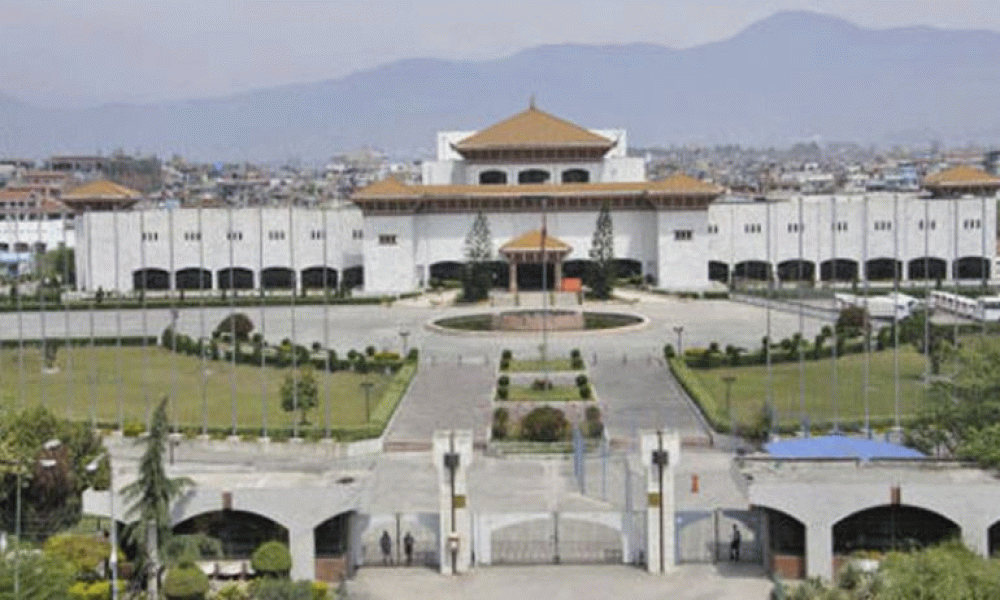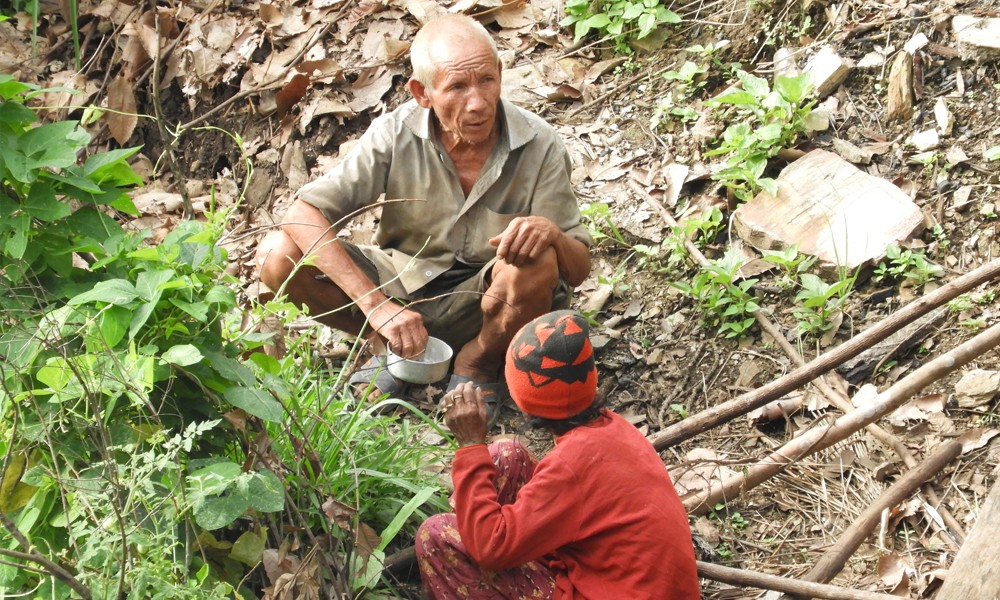Is Nepal's new constitution best in the world, as claimed by the major political parties?
No. Those parties that voted for Nepal's new constitution are claiming that it is the best charter in the world. But this constitution is devoid of rights of indigenous people enshrined in charters of many other democracies.
Right to self-determination, self-governance and autonomy are some of the fundamental rights of indigenous people. Many constitutions around the world have guaranteed these rights for indigenous people. But Nepal's constitution has not.
Bolivia, a South American country, passed its constitution in 2007 guaranteeing rights of self-determination, autonomy and self-governance to indigenous people. The constitution of Columbia, another South American country, promulgated in 1991 recognizes indigenous people's rights to collect tax in their autonomous regions. In Mexico, the constitution has recognized autonomous institutions of indigenous people as representative political organizations. Peru's constitution has guaranteed economic and administrative autonomy of indigenous people.
Right to self-determination, self-governance and autonomy are some of the fundamental rights of indigenous people. Many constitutions around the world have guaranteed these rights for indigenous people. But Nepal's constitution has not.
Closer to home, India's constitution has provisions of the scheduled and tribal areas in which land traditionally occupied by indigenous people cannot be owned by outsiders. Constitutional rights given by Ethiopia to indigenous people cannot even be imagined in Nepal. It has recognized rights of indigenous nationalities to secede from the country. The US constitution views American Indian tribes as a nation within the united territory. Two landmark US verdict–Johnson Vs M'Intosh and Cherokee Nation Vs Georgia – treats Native Americans as sovereign nations. These rulings further state that other Americans cannot buy and own land traditionally occupied by tribal communities.
In Nepal, the draft prepared by the first Constituent Assembly (CA) was in tune with the UN Declaration of the Rights of Indigenous People and the International Labor Organization (ILO) convention 169. The State Restructuring Committee of the first CA had also proposed provinces and special zones based on identity of indigenous nationalities. The first meeting of the second CA decided to build on the resolutions passed by the first CA. But the second CA not only rejected resolutions of the first CA but also overlooked international treaties and constitutional practices.
Rights over natural resources and prior informed consent
In Canada, the Constitution Act 1982 requires the state to incorporate agreements with indigenous nationalities in the constitution itself. It also guarantees indigenous people's rights to reclaim their land snatched away from them without their prior informed consent. The constitution of Argentina recognizes collective rights of local tribes over natural resources. Constitutions of India and Bolivia recognize indigenous peoples' rights over the land where they have been living traditionally. In countries like Malaysia and the Philippines, constitutions are devoid of specific rights of indigenous people. But they have laws (Indigenous People's Rights Act in Malaysia and Native Customary Rights in the Philippines) that protect indigenous people's rights over land and natural resources. These laws also require the state or any non-state actor to get indigenous people's prior consent before owing their land.
Various committees of the first CA had passed concepts similar to indigenous people's rights over land and natural resources enshrined in constitutions of other countries. But the new constitution ended up rejecting all those concepts.
Various committees of the first CA had passed concepts similar to indigenous people's rights over land and natural resources enshrined in constitutions of other countries. But the new constitution ended up rejecting all those concepts. The article 25 of the new constitution has enabled the state to acquire indigenous people's lands for 'public welfare '. This is a setback to indigenous people fighting for their rights over natural resources. In absence of clear constitutional provisions and laws, thousands of indigenous people in Nepal have been forced out of their lands. At least 10 indigenous groups have become extinct after being forced out of their traditional villages. But the new constitution has failed to protect their rights.
Constitutional recognition of agreements with indigenous people
In New Zealand, the government had signed an agreement with the local Mauri indigenous people in 1840. That agreement was incorporated into the constitution passed by New Zealand in 1986.
In Nepal, the state has signed agreements with several indigenous peoples. An agreement in 1831 BS between the state and the Limbus is an example. Also in the recent years, the government has signed agreements with the Nepal Federation of Indigenous Nationalities (NEFIN) , Tharus and Madhesis. But the new constitution did not recognize any of these agreements.
In Nepal, the state has signed agreements with several indigenous peoples. An agreement in 1831 BS between the state and the Limbus is an example
Secularism
The new constitution recognized Nepal as a secular country. But its definition of secularism is not only bizarre but ridiculous. The constitution says Nepal is a secular country but 'ancient religious practices (Sanatan Dharma) will be protected and promoted'. Nepal Academy defines Sanatan Dharma as ancient religion practiced by Khas-Arya community, Nepal's ruling class, for centuries. So the constitution of a secular country prefers to protect religion of one community and ignores religions of many other communities. So secularism enshrined in Nepal's new constitution is flawed, to say the least.
(Part 1)
(This article is the first part of a series published by LAHURNIP, the Lawyers' Association of Human Rights of Nepalese Indigenous People, to shed light on several aspects of Nepal's new constitution with regards to Adivasi Janajatis)









